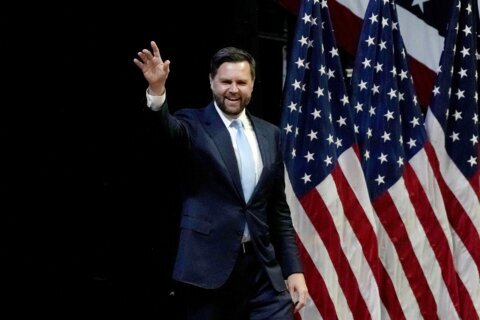Financial planners are accustomed to adapting to changes in laws or regulations. The 2015 Supreme Court decision allowing same-sex marriage nationwide made many planning elements easier for LGBTQ couples.
For example, married LGBTQ couples could immediately use Social Security claiming strategies that were previously off limits.
Also, easier was the treatment of qualified retirement accounts, which are passed along to a spouse upon the death of the owner, without going through probate.
A widowed spouse pays no estate tax when receiving money after a spouse’s death. This tax benefit also had not been available to LGBTQ couples.
Even though the ruling allowed equal treatment under the law, there are still many reasons why financial advisors are carving out a niche serving LGBTQ clients — and why many LGBTQ clients seek out an advisor with this specialty.
“Money is such an intimate and difficult thing to talk about anyway, so not having to also ‘come out’ or not know how your financial advisor may respond to you was something I wanted to take off the table as a factor for clients,” says Jim Marrocco, founder and financial planner at Thinking Big Financial in New York.
Stephanie Sammons, founder and CEO of Sammons Wealth Management in Dallas, spent most of her career at a large brokerage. “I didn’t have as much freedom to serve who I wanted to for multiple reasons,” she says. “When I became an independent RIA, it was an opportunity to focus my practice on my natural market, which is LGBTQ women professionals in midlife.”
[SUBSCRIBE: Get the weekly U.S. News newsletter for financial advisors. ]
David Rae, president and founder at DRM Wealth Management In Los Angeles, says his focus on LGBTQ clients is a way of aligning his interests with his clients’ interests.
“I am gay myself, so specializing in working with the LGBTQ community seemed like a natural fit,” he says. “(It’s) more fun for me to work with people I have a ton in common with and hopefully more enjoyable for my clients as well. I do try and make financial planning fun and fabulous whenever possible.”
However, Rae also identified serious issues for his clients.
“I saw how many challenges same-sex couples faced without marriage equality. Not to mention, I encountered so many people who were afraid to come out to their financial professional, which meant they were likely to get subpar advice,” he says.
“Letting someone delve into your financials can be stressful, and another gay person is more likely to get it and less likely to judge your spending habits,” he adds.
Income Gaps can Affect Planning
Before the 2015 Supreme Court ruling, LGBTQ couples often had to jump through financial planning hoops to lock in estate planning benefits, such as assuring that assets were passed along to a surviving partner.
But planning needs still exist — for both married and unmarried couples. According to 2019 data released by the U.S. Census Bureau, many same-sex couples sharing a household are unmarried.
“There is so much more that can be planned for in the community: Family planning for queer families — which can mean many different things — income differentials, trans planning issues or elder care for LGBTQ folks,” Marrocco says.
He notes that income gaps continue to exist within the LGBTQ community. “Some of it may be due to workplace discrimination. I believe the transgender community suffers the most from job discrimination and income disparity,” he says.
“But there are many other factors that can impair folks’ financial health,” Marrocco adds. “There could be a family refusing to pay for a child’s education, meaning student loans or less education, or the need to move away from family to urban areas to feel more safe, and the associated higher cost of living to do so. These can all mean financial stability or independence are more delayed, certain financial supports aren’t available and that a wealth and income gap persists for much longer.”
Rae also says workplace discrimination plays a role in many aspects of financial planning for the LGBTQ community. “Women and people of color often earn less than their white counterparts. You have a lesbian couple of color, you are likely going to see pay disparity. This can drastically reduce their financial security and ability to save for a secure future.”
But he notes, “Recent census data shows that same-sex households with two men actually make more than the average heterosexual couple.”
[See: The Best Podcasts for Financial Advisors]
No One-Size-Fits-All Approach
With her clients, Sammons explores different planning scenarios. One involves couples who are deciding whether they should tie the knot.
“We have in-depth discussions about which assets they will keep separate and which will become community or joint property, as well as whether or not a prenuptial agreement is necessary,” she says. “I also advise couples to update their estate planning documents once they do get married. You just can’t take anything for granted, and this is something we have to be on top of as LGBTQ people.”
She sees variations in how couples approach their finances, regardless of marital status.
“Some LGBTQ couples still want to keep their financial assets separate even after they get married. I also work with couples who have been together for years but have chosen not to marry,” she says.
“The bottom line is that we have to have deep discussions about what works best for their unique circumstance,” she adds. “Other considerations include when kids are involved. More and more LGBTQ people are raising children or bringing children into the relationship from a prior relationship.”
Starting a family is an area where gay and lesbian couples face different issues than traditional couples, Marrocco says.
“A gay couple that is looking to adopt or have a child through surrogacy, or a lesbian couple doing fertility treatments, will have to pay tens of thousands of dollars — up to $150,000 in some cases — to grow their family,” he says.
Rae notes that LGBTQ couples may have children later in life than their heterosexual counterparts. “This can leave many couples facing college tuition at the same time they are hoping to retire,” he says.
[See: 15 Financial Advisor Marketing Tips]
Advisors serving the LGBTQ community say that the specialty area is well-positioned for growth.
“I believe that the LGBTQ community is overlooked and underserved in financial services,” says Sammons. “I’ve also seen many instances where LGBTQ folks haven’t demanded high-quality service and fair fees from their financial advisor, or may not even share the same values as their advisor. This provides a significant opportunity for financial advisors who are passionate about serving the LGBTQ community and understand the unique needs of LGBTQ clients.”
Marrocco says he’s been heartened to find that clients discover him because of this specialty. “It signals to me that at the end of the day, LGBTQ folk want to feel comfortable when working with a planner that understands and is sensitive to their needs,” he says.
“With the passage of marriage equality, many have thought that LGBTQ planning needs have been eliminated, but the needs of the community are more complex than that,” he adds. “From family planning to elder care to income and wealth disparities,” it’s more nuanced than just marriage equality.
[READ: Should I Get a Financial Advisor?]
More from U.S. News
6 Pros and Cons of Choosing a Fee-Only Financial Advisor
How to Be a Successful Financial Advisor For Your Target Clients
Q&A With Steven Skancke, Chief Economic Advisor at Keel Point
Advisors See Planning for LGBTQ Community a Growing Niche originally appeared on usnews.com







